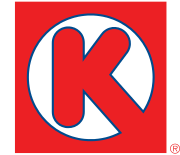Circle K
Interested in selling your Circle K or Circle K lease property and was wondering what you can get for it in today’s changing market?

Contact us for a complimentary broker opinion of value for your off-market Circle K NNN property for sale or Circle K ground lease property for investment, specifically tailored to support your 1031 exchange requirements. This valuable assessment will provide you with the necessary clarity to make informed decisions regarding the sale of your Circle K NNN property or the inclusion of a Circle K ground lease property in your investment portfolio. As specialists in working with 1031 exchange buyers seeking off-market Circle K properties, we are dedicated to delivering competitive offers with reduced fees to help you maximize your investment returns.
Number of locations
Revenue and income
Circle K recorded a total revenue of $85.6 billion in 2022. The company’s net income for the same period amounted to $1.9 billion.
Future plans
Corporate vs. franchise
Additional information Circle K Properties
Circle K History
Why Invest in Ground Lease and NNN Lease of Circle K?
Investing in Circle K’s ground lease and triple net (NNN) lease properties offer compelling reasons:
1) Circle K NNN Property Investment: Stable income
Benefit from steady cash flows with Circle K’s established market presence and reputation. Ground and NNN leases offer stability in income over the long term.
2) Circle K NNN Property Investment: Established tenant
Circle K’s strong brand recognition and success contribute to a reduced lease default or vacancy risk, ensuring a reliable tenant for your property.
3) Circle K NNN Property Investment: Low management responsibility
With ground and NNN leases, the property maintenance and expenses responsibility rests with the tenant, minimizing the landlord’s management duties.
4) Circle K NNN Property Investment: Favorable lease terms
Long lease durations with rent escalations built in can provide consistent income and the potential for rental growth
5) Circle K NNN Property Investment: Real estate value
Strategic placement of Circle K stores in high-traffic areas can enhance property value, offering the potential for appreciation.
Pros and Cons of Circle K Ground Lease and NNN Lease Investment
Pros:
1. Stable income from an established brand.
2. Reduced vacancy and lease default risks due to Circle K’s success and brand recognition.
3. Landlord’s management responsibilities are minimized.
4. Long lease terms contribute to stability and potential income increase.
5. Potential for property value appreciation in prime locations.
Cons:
1. Lease renewal uncertainty upon term expiration.
2. Exposure to Circle K’s operational challenges and success.
3. Market competition and saturation impact profitability.
4. Limited control over property decisions.
5. Inherent real estate investment risks related to the economy and market fluctuations.
Perform comprehensive research and consider location, lease terms, tenant strength, and investment strategy. Consulting real estate professionals and financial advisors is crucial to aligning your investment with your goals and risk tolerance.

